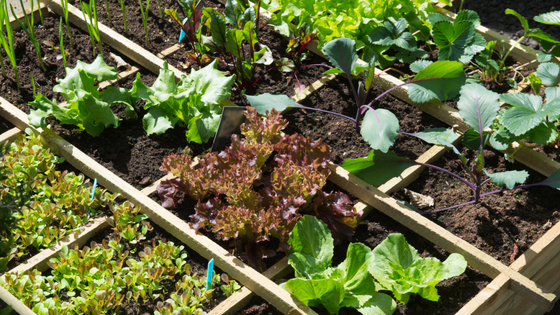
It is crucial to fertilize your herbs in order to grow them on your window sill. As natural fertilizers, fruit peels can be used. Simply soak the peels in water and sprinkle them on your plants to release vitamins and minerals. Don't crowd your herbs. It will interfere with your kitchen's decor and will affect your plants growth. To avoid overcrowding, small rocks can be placed around your herbs.
A windowsill is a good place to grow herbs such as mint, rosemary and chives. You can also grow herbs on your windowsill by planting soil. Many people prefer to plant herbs in containers rather than in soil. Listed below are some suggestions that will help you grow your own herbs. Remember to water your plants regularly.

You can reuse empty paper cups and plates to make pots. Brightly colored pots can be chosen to match your kitchen decor. These pots will look great on your windowsill. Make sure to add fresh manure to your potting soil. A pot with enough nutrients will encourage more growth. It is important not to overwater your plants, as this can cause damage to the roots. To drain water from the container, it's a good idea for them to have a hole.
Indoors, you can grow your own herbs. Choose herbs that are most used in your kitchen. These herbs are basil, coriander (chives), parsley, cilantro, chives. chervil, and mine. You can also plant a window sill garden with seeds and mature plants. Artificial light can be used to supplement your window sill garden if there is no windowsill. A small LED light can be mounted under cabinets or windows with ease. You can also buy pots with a wide range of colors and styles.
An easy way to grow windowsill herbs is to not make it difficult. It's a great project for kids and a simple DIY project for the whole family. If you give it enough time, you can have fresh herbs that are ready to go for any occasion. You can even grow herbs in containers that are large enough to be used in your dishes. These herbs are also easy to care for.

Consider the herbs that you most frequently use before starting your herb garden. You will need to decide whether you prefer to plant herbs from seeds, or small potted varieties. Decide whether you'll plant annual or perennial varieties. The former should be replanted every spring. Perennials work better on a window sill than annual herbs. However, you must replant your annual plants every spring. Make sure your plants get sufficient sunlight to grow healthy.
FAQ
Is there enough space in my backyard to grow a vegetable garden.
It's possible to wonder if you will have enough space for a vegetable or fruit garden if your current one is not available. The answer to that question is yes. A vegetable garden doesn't take up much space at all. You just need to plan. You could make raised beds that are only 6 inches tall. Containers can be used in place of raised beds. You'll still get lots of produce.
What size space is required for a vegetable garden?
The rule of thumb is to use 1/2 pound seed per square foot. You will need 100 pounds of seed if your area is 10 feet by 10 foot (3 meters by 3 metres).
What should you do first when you start a garden?
First, prepare the soil before you start a garden. This includes adding organic matter such as composted manure, grass clippings, leaves, straw, etc., which helps provide plant nutrients. Next, plant the seeds or seedlings in the holes. Then, water well.
How often do I need to water my indoor plants?
Indoor plants need watering every two days. Watering helps maintain humidity levels inside the house. Humidity can be vital for plants that are healthy.
When is it best to plant herbs?
When the soil temperature is 55°F, herbs should be planted in spring. They should be in full sun to get the best results. To grow basil indoors you need to place the seedlings inside pots that have been filled with potting soil. Once they start sprouting leaves, keep them out from direct sunlight. When plants are growing, place them in bright indirect lighting. After three weeks, you can transplant them to individual pots and water them every day.
Statistics
- As the price of fruit and vegetables is expected to rise by 8% after Brexit, the idea of growing your own is now better than ever. (countryliving.com)
- Today, 80 percent of all corn grown in North America is from GMO seed that is planted and sprayed with Roundup. - parkseed.com
- 80% of residents spent a lifetime as large-scale farmers (or working on farms) using many chemicals believed to be cancerous today. (acountrygirlslife.com)
- According to a survey from the National Gardening Association, upward of 18 million novice gardeners have picked up a shovel since 2020. (wsj.com)
External Links
How To
How do I keep weeds out of my vegetable garden?
The biggest threat to the growth of healthy vegetables is weeds. They compete for water, nutrients, sunlight, and space. These tips can help prevent them taking over your garden.
-
Take all flowers and plant material.
-
Be sure to remove any debris or leaves from the base.
-
Use mulch
-
Water regularly
-
Rotate crops
-
Don't allow the grass to grow too long
-
Keep soil moist
-
Plant early
-
Harvest often
-
Make compost
-
Avoid chemical pesticides
-
Produce organic vegetables
-
Heirloom Seeds Available
-
Start small
-
Learn about companion planting
-
Be patient
-
Enjoy gardening!